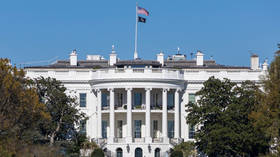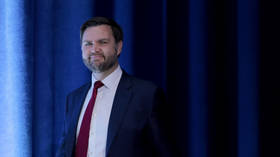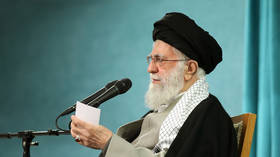‘Despair, fear and loathing’: Americans in Britain give their 2¢ on US election (VIDEOS)
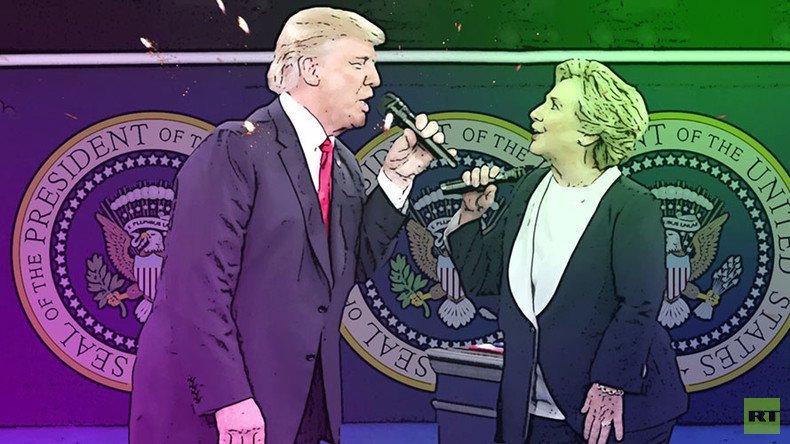
UK-based American voters could help swing this year’s race for the White House, so RT asked four young US citizens living in Britain for their two cents worth on the presidential election.
“Despair, fear and loathing” is not the title of a novel by gonzo journalist Hunter S. Thompson, but instead one American’s opinion of the 2016 presidential election.
Pat, 31, is one of four young US nationals living in the UK to share their thoughts on Tuesday’s vote. His gloomy assessment is a majority view in the States, where 82 percent of Americans feel disgusted by US politics, according to a New York Times/CBS News poll.
Pat, who supported Bernie Sanders in the Democratic primaries, discussed the bizarre election race with fellow ‘Berniecrat’ Beth. Whereas Beth, 23, is voting for Clinton on Election Day, Pat is ‘writing in’ Bernie.
RT also paired up a Donald Trump supporter with a reluctant Clinton voter and gave them free reign to interrogate each other on the scandal-ridden election race.
Rob, 19, is a College of Charleston student and Trump voter on a study abroad program in London. He joined Boston University student Annalise, 20, a progressive who is strongly opposed to a Republican presidency.
‘It’s not a good look for America’
When asked to sum up the 2016 election in a few words, Pat and Beth couldn’t muster a single positive adjective.
“Despair, fear, loathing,” answered Pat, of Newport, Rhode Island, who has lived in Britain for six years.
“Creative destruction, because this could be the end of the Republican Party as we know it,” he added. “Which, you know, from where I’m sitting could be a good thing. Who knows what will rise from the ashes, but it’s not a good look for America.”
Beth, who has lived in the UK for four years, was equally unimpressed: “I’d say it’s unnerving, disappointing, [and] somewhat predictable.”
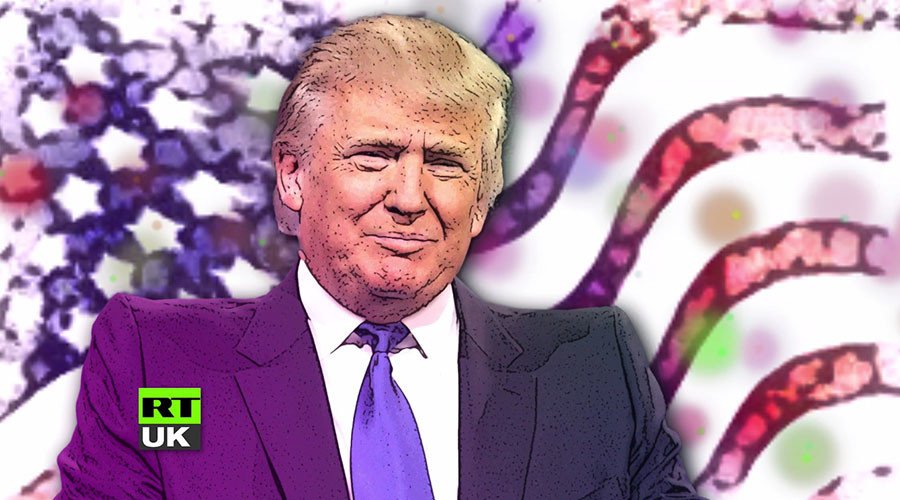
The special educational needs teacher couldn’t understand why Clinton supporters were so proud of their candidate’s performance during the three televised debates with Trump.
“What I find so disappointing about this and so bizarre is that in the last two presidential debates, after each one people are like, ‘Whoa, Clinton knocked that one out of the park! Hillary did so well!’ And I’m like, well she did, but so would I. So would anybody with a high school degree. Anybody going up against Trump is going to look fantastic.”
‘I’m voting for Clinton, but I’m not happy about it’
This criticism aside, Beth is still voting for Clinton via absentee ballot to her home state of Illinois.
“I’m not happy about it, I’m not going to be partying when she wins, but I get so bored with entertaining the idea of Jill Stein with people who I think are suffering from some kind of historical amnesia,” she said.
This historical amnesia is a reference to the 2000 presidential election, in which Democratic nominee and former Vice President Al Gore narrowly lost to Republican nominee George W. Bush.
Many Democrats continue to blame third-party candidate Ralph Nader for “handing” the election to Bush by attracting votes that could have gone to Gore. This argument is fiercely contested, most vehemently by Nader himself.
'I’m not a spoiler & neither is Jill Stein' - Ralph Nader, Former US presidential candidate https://t.co/bOjtU0Sj5c
— RT (@RT_com) September 3, 2016
“Speaking of impotent protest votes, I’ve written in Bernie Sanders,” Pat said unashamedly.
“It’s because I’m from the state of Rhode Island. If Rhode Island goes for Trump by one vote, then I’ll buy everyone a coke.”
Pat, who works for Foundation for International Education in London, said Bernie was the first presidential candidate to really inspire him.
“I’m 31 now. My first election was 2004. I’ve never had a candidate or even primary candidate who I felt that I could support wholeheartedly, who, you know, was saying the right things at the right time.”
Trump versus Clinton
Rob, a Trump supporter, and Annalise, a Clinton voter, are American university students on a three-month semester abroad in London.
Rob, of Beaufort, North Carolina, stressed Trump’s economic policies as the main reason for supporting the candidate. Annalise, of Minneapolis, Minnesota, said she was horrified by Trump’s intolerant rhetoric and was backing Clinton because of her stance on social issues.
When asked how Trump will change America for the better, Rob said: “I think that getting out of the trade agreements, such as the [Trans Pacific Partnership and] the North American Free Trade Agreement (NAFTA). I think that will help revitalize the economy and will help bring jobs back to the United States.”
Rob cast suspicion on the “socialization” of healthcare in America, suggesting that providing private medical care will create more jobs in the US.
Trump has promised to repeal Obamacare if he becomes president and bring in reforms that “follow free market principles.”
‘Not super optimistic either way’
Annalise said she was not “super optimistic” about either candidate, but is voting for Clinton because she believes she will support the liberal social policies brought in by Obama.
“I do think if Hillary becomes president she will make America better in that it’ll maintain the status quo that President Obama has worked to uphold. I’m a really big fan of Obama’s presidency so far, especially in regards to social issues.”
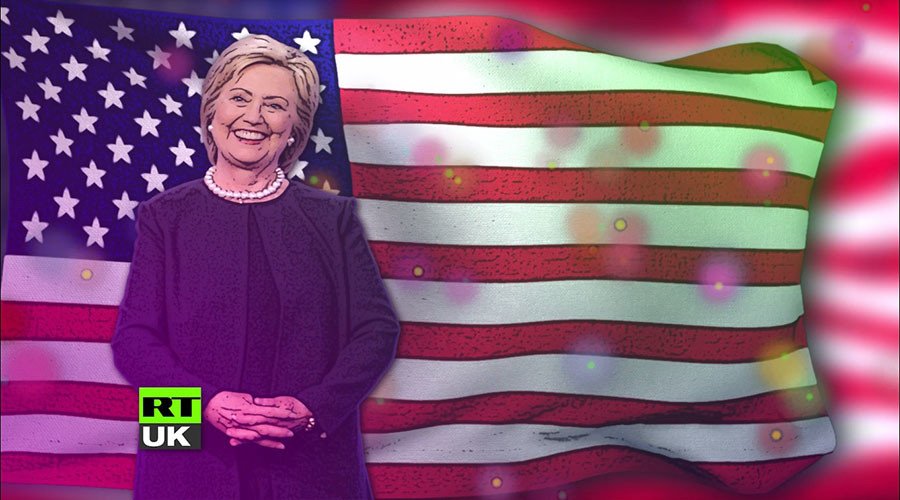
When Rob accused Clinton of “using the political system for her personal gain” by taking donations from overseas governments through the Clinton Foundation, Annalise hit out at Trump for his misogynistic comments and xenophobic comments.
“I don’t trust Donald Trump because he’s an alleged rapist. He says sh*tty things about women; he says things about Muslims and Hispanics, people that make up America, that are simply appalling to me.”
In an election year when one candidate stands accused of stirring up racial hatred and another of accepting money from Saudi Arabia, it appears Hunter S. Thompson’s observation of the 1972 presidential contest between Richard Nixon and George McGovern still rings true today.
“When the going gets weird,” Thompson wrote, “the weird turn professional.”






